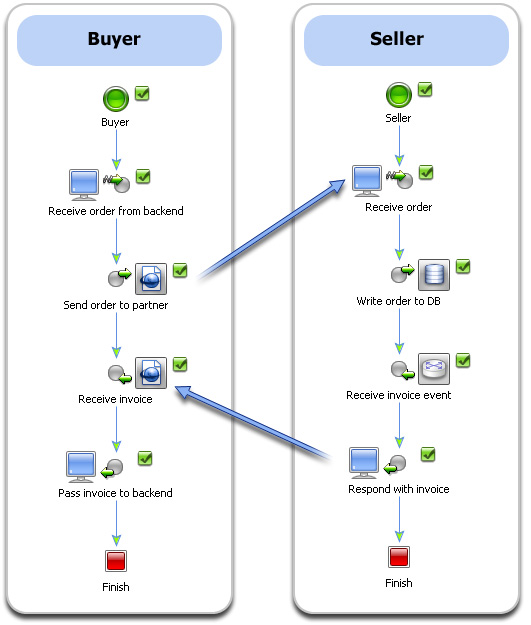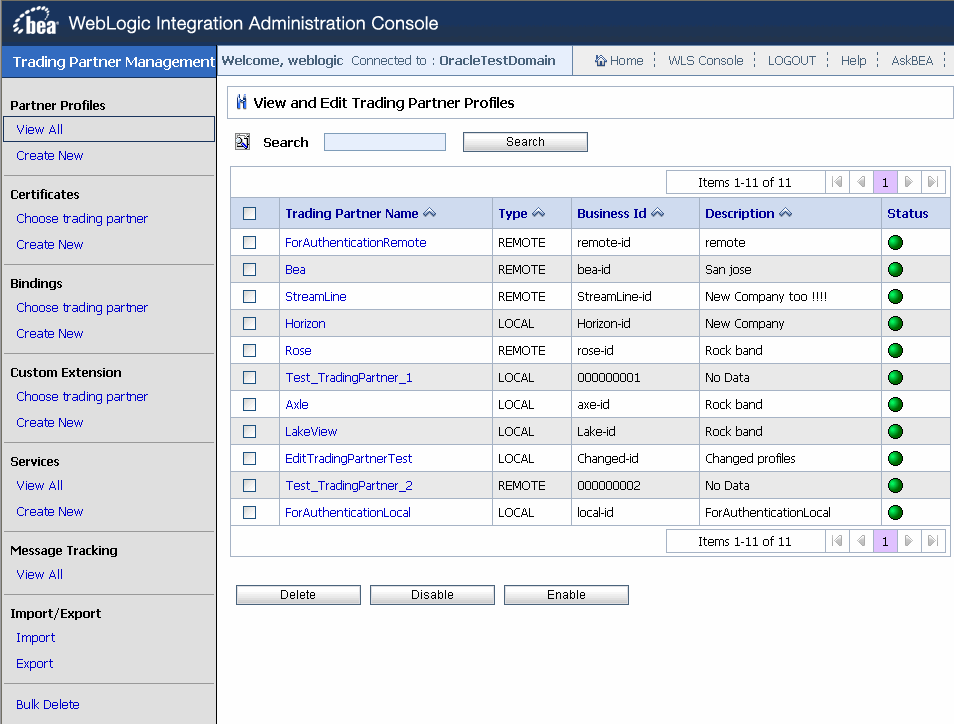







|
WLI enables you to automate and manage relationships with your trading partners so that you can streamline your business processes with customers, suppliers, distributors, and other partners to get a top-down view of business transactions across the value chain.
Table 8-1 summarizes the trading partner integration capabilities of WLI.
Figure 8-1 shows an example of basic interactive business processes between trading partners.

The buyer process sends an order to the seller by using a business protocol (ebXML or RosettaNet) that is agreed upon. The seller process receives the request, writes the order to a database, receives an invoice from an internal back-end system, and then sends the invoice to the buyer process by using the same business protocol. Such a message exchange is called a conversation. The initiating trading partner (buyer in this case) is the initiator and the responding trading partner (seller in this case) is the participant.
Figure 8-2 shows a partial view of the TPM home page in the WLI Administration Console, which allows administrators to manage trading partner profiles, security certificates, protocol bindings, services, message tracking and auditing, trading partner activity, and so on.



|